From the Desk of Jack Kennedy III
Happy New Year!
2022 will be a year of newsletter inspiration. The world can surely use more positive quotes, stories and outcomes. From time-to-time, we’re presented with amazing wisdom that forever leaves a forging impression on us. Seven years ago, Naval Adm. William H. McRaven delivered a commencement address at The University of Texas that still resonates with me to this very day. Below is an excerpt from his speech and a simple piece of advice.
“If you want to change the world, start off by making your bed. If you make your bed every morning you will have accomplished the first task of the day. It will give you a small sense of pride, and it will encourage you to do another task and another and another. By the end of the day, that one task completed will have turned into many tasks completed. Making your bed will also reinforce the fact that little things in life matter. If you can’t do the little things right, you will never do the big things right. And, if by chance you have a miserable day, you will come home to a bed that is made — that you made — and a made bed gives you encouragement that tomorrow will be better. If you want to change the world, start off by making your bed.”
When I first heard this, my youngest daughter was four years young. She quietly watched the video and Adm. McRaven’s words did something that I could never do. It inspired her to make her own bed. As explained by the Admiral, we have a much better chance of getting the big things right if we master the little things first. I invite you to watch the abbreviated version of the video below and hope you enjoy it as much as I have over the years.
This month's newsletter addresses several insightful topics including tax planning and several themes that will affect your 2022 investing. We’re also sharing decluttering tips and an article entitled New Year, New (Financial) You that provides five healthy financial habits for women investors to weave into their 2022 goals.
On behalf of everyone at KIG, thank you for taking the time to read our newsletter and the opportunity to serve you.
Best Regards,
Jack

Click here to find a transcript and full video of the speech.
Any opinions are those of Jack W. Kennedy and not necessarily those of RJFS or Raymond James. There is no guarantee that these statements, opinions or forecasts provided herein will prove to be correct. Past performance is not indicative of future results. Investing involves risk and you may incur a profit or loss regardless of strategy selected. Sector investments are companies engaged in business related to a specific sector. They are subject to fierce competition and their products and services may be subject to rapid obsolescence. There are additional risks associated with investing in an individual sector, including limited diversification.
New Year, New (Financial) You
Five healthy financial habits for women investors to weave into their 2022 goals.
With a new year around the corner, self-improvement may be top of mind for many. We hope that resolve applies to your financial plan too. Statistics show the percentage of people who stick to their resolutions is somewhere in the single digits, but these financial resolutions are well within reach, with a little professional guidance.
Close the gender gap in life insurance
We’ve known for decades about the gender gap in salaries and how important it is to close. Progress is being made, but there is still a way to go. Unfortunately, the gap also exists when it comes to life insurance. According to findings from the 2021 Insurance Barometer Study, just 47% of women have life insurance versus 58% of men, and 32% of those with no coverage admitted to needing it. Additionally, women tend to place a lower financial value on their lives than men when buying policies.
If you don’t have life insurance, it’s worth a conversation with an advisor to help you determine how much coverage you need. The age-old formula of buying five or 10 times your annual salary is no longer advisable as there are considerations that go beyond your W2, like women’s unpaid labor in the household (think: laundry, childcare, cooking and cleaning). If you do have protection, revisit the policy’s value; you may need more coverage than you once did.
Put your financial health first
Women are still more likely to be caregivers for their children and elderly family members, and they may set aside some of their peak earning years to do so. Additionally, women generally live longer than men, even though they tend to make less throughout their lifetimes. Because of this, retirement savings often suffer and women may find themselves trying to play catch-up in later years. To boot, women often think of their earnings as benefitting the family rather than their future self.
The same way you’re supposed to put your mask on first in a flight emergency, you should prioritize ensuring your retirement savings are on track to cover what you’ll need later. The start of the year is a good time to reexamine how much you’ve saved and how much you’ll need to retire the way you envision. Give yourself as much time as possible to up your contributions or alter investments if need be.
Budget to lighten the load during business times
It’s happened to all of us: Someone’s out of clean socks or the leaves are piling up in the backyard. We live busy lives, trying to keep up with work and family and take care of our homes – never mind squeeze in time for leisure every once in a while too. Maybe dialing back on how many chores you’re packing in each weekend will give you that time around the fireplace with family or cocktails with friends that makes you feel balanced. But you can’t just let the fridge go unstocked or abandon the dry cleaning.
Consider outsourcing some of the most time-consuming and (dare we say) dull chores to get more meaningful time back in your life. To make it happen, set aside funds in your 2022 budget. As we head into the new year, make a list of the chores that give you the biggest headache (or the ones that will give you the most time back in your week) and calculate how much it would cost to outsource them. Apps like TaskRabbit, Thumbtack and Handy allow you to book services only when you need them, instead of making a regular commitment.
Keep the giving going
One silver lining from the pandemic? Charitable giving is up. According to the Giving USA report, Americans gave more money to charity in 2020 than the previous year – up 5.1% year over year, or a 3.8% increase when adjusted for inflation. Despite the financially challenging year some faced, the desire to help was high. And studies show single women, holding consistent income and wealth, are more likely to give to charity than single men.
If generosity feels good, work with your advisor to create a plan to keep the kindness going. Create your giving goals, vetting specific institutions, at the outset of the year so you can allocate donations accordingly. We all want the opportunity to help when we see a story on our Facebook feed or a local news report, but earmarking a certain amount at the start of the year allows you to be purposeful with your giving and align it to your values. It will also ensure you’re maximizing tax benefits.
Set up a monthly check in
It’s important to regularly assess your financial health. While automation ensures bills are paid and money’s being invested, it could mean you run the risk that your investments are no longer aligned to your current situation or newly formed goals or you haven’t accounted for changes in your financial life.
It’s as simple as asking Siri or Alexa to remind you to set a financial goal for that month. During one session, you may want to sit down with your advisor and discuss the risk level of your portfolio. In the next, you might want to reevaluate your budget with your spouse or partner. The idea is that you remain in touch with your finances and are continually setting new objectives for your financial endeavors.
Even if you don’t make formal resolutions, these healthy financial habits are something to keep in mind throughout the year to ensure you’re on track for building safety and security – and wealth – in 2022.
All expressions of opinion reflect the judgment of Raymond James & Associates, Inc. and are subject to change. There is no assurance any of the trends mentioned will continue or that any of the forecasts mentioned will occur. Economic and market conditions are subject to change. Investing involves risk including the possible loss of capital. The S&P 500 is an unmanaged index of 500 widely held stocks. It is not possible to invest directly in an index. The market performance noted does not include fees and charges which would affect an investor’s returns. Past performance may not be indicative of future results.
Sources: lifehappens.org; theconversation.com; fortune.com; cnbc.com; moneyning.com; discoverhappyhabits.com
*Raymond James is not affiliated with the phone apps mentioned above.
Investment products are: not deposits, not FDIC/NCUA insured, not insured by any government agency, not bank guaranteed, subject to risk and may lose value. Raymond James financial advisors do not render legal or tax advice. Please consult a qualified professional regarding legal or tax advice.


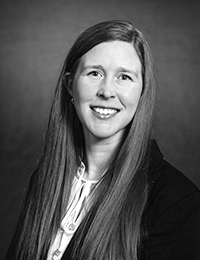 Maggie Slivinski
Maggie Slivinski Steve Corbo
Steve Corbo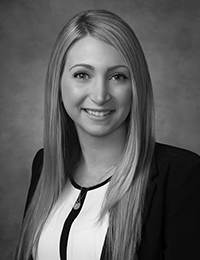 Alexandra Rao
Alexandra Rao Alexa Comey
Alexa Comey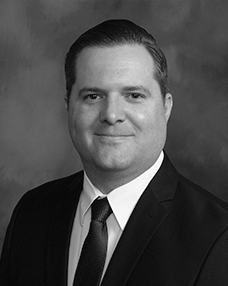 Gene Donato
Gene Donato Jack W. Kennedy III, CFP®, AAMS®
Jack W. Kennedy III, CFP®, AAMS® Henry (Hank) J. Schroeder, CFP®
Henry (Hank) J. Schroeder, CFP®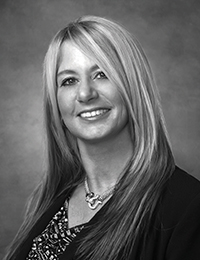 Diane Gallagher
Diane Gallagher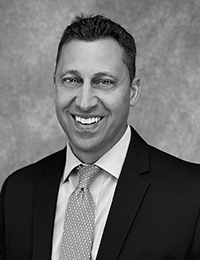 Scott Bernstiel
Scott Bernstiel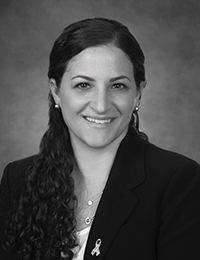 Chrissy Carpenter
Chrissy Carpenter David Strout
David Strout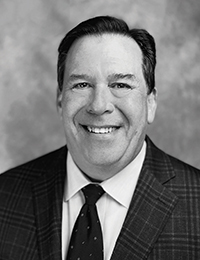 Keith R. Hering AAMS®, CRPS®, CIMA®
Keith R. Hering AAMS®, CRPS®, CIMA® 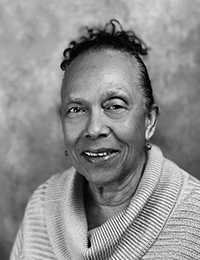 Marjorie Onuwa
Marjorie Onuwa